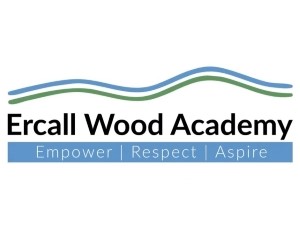Context for joining Behaviour Hubs
Ercall Wood Academy is a co-educational converter academy for Key Stages 3 and 4 and currently has 930 pupils from a mix of areas with high levels of deprivation and more affluent areas. The academy has been judged as ‘Requires improvement’ by Ofsted for its previous three inspections, with the last inspection being in January 2016. The current principal has been in post since June 2020.
Behaviour challenges and goals
Ercall Wood’s Behaviour Hubs journey was focused on providing targeted support for pupils who were demonstrating highly challenging behaviour. Exclusions and pupils accessing in-school units were proving to be a significant barrier to learning, and the academy identified the need to change its culture and address the needs of these pupils. This involved the following:
- Developing a culture of optimism and lateral thinking in how the academy meets these pupils’ needs;
- Changing a mindset that students who have demonstrated highly challenging behaviour will automatically be referred to alternative provision, before exploring all other possibilities;
- Creating systems which allow pupils to manage and change their behaviours effectively, to develop behaviour self-regulation and access their learning successfully.
“We knew we had to change behaviour – we just didn’t know where to begin. But the Behaviour Hubs programme made this much more manageable.”
Solutions to behaviour challenges
Once Ercall Wood Academy had diagnosed what needed to be changed with support from their Lead school, the senior leadership team was able to actively implement solutions. One of the primary solutions developed was the Aspire programme, which was launched at the beginning of the 2021-22 academic year.
The Aspire programme is a mentor-led programme that helps pupils who are finding it difficult to engage with the curriculum for a variety of reasons. The Aspire programme is based on a graduated approach with rapid reviews and re-adjustments of plans, where necessary to meet individual pupils’ needs. Weekly review meetings allow the mentors to ensure that their approach is effective, as well as making reasonable adjustments when needed.
The Behaviours Hubs programme helped significantly in consolidating Ercall Wood’s thinking on how to meet the needs of pupils who were demonstrating highly challenging behaviour, and to ensure that its values and vision are sound. Phrases such as ‘behaviour is communication’ and ‘certainty not severity’ are now framed in Ercall’s policies and actions.
Impact on behaviour
Since implementing its behaviour solutions, Ercall Academy has made strides towards an improved behaviour culture that benefits everyone. There are extensive layers of support for all pupils from Heads of Year, key stage leaders and Aspire mentors. Ercall’s Lead school noted that pupils speak about their school with pride, and pupils have a strong understanding of what constitutes good and poor behaviour – as well as the consequences of such behaviour. The number of detentions, exclusions and the use of in-school alternative provision have also been reduced.
After a safeguarding audit completed by the local authority (Telford and Wrekin), the following feedback was received:
“Fixed term and permanent exclusions are used well and as a last resort, to help maintain long-term education placement and as a response to one-off significant incidents. The team is innovative in their approach to meeting children’s needs and removing barriers and it is exciting to consider the positive ongoing impact of the mentor role to further reduce the exclusion rates.”
Next steps on your behaviour journey
Having completed the Behaviour Hubs programme, Ercall Academy plans to continue their journey having developed skills to further develop and consolidate their behaviour culture. Going forward, Ercall Academy will:
- Develop the interventions available to the academy;
- Appoint a new Aspire mentor to specialise in outdoor skills;
- Develop more professional development for mentors and year leads according to need;
- Restructure pastoral leadership to allow for a greater focus on the leadership of interventions, Aspire and SEND.

